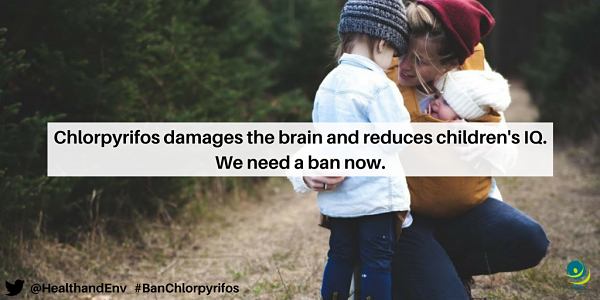Science has a crucial role to play in the implementation of the revised EU clean air law, according to a new briefing by the METEOR research cluster. The briefing showcases how the projects in this EU funded research cluster can help support policymakers in the design of clean air measures and help in evaluating those which are most beneficial to health.
Today, the Health and Environment Alliance (HEAL) together with Générations Futures, Pesticide Action Network Europe and Pesticide Action Network Germany releases a factsheet on the health effects of chlorpyrifos.
Chlorpyrifos is one of the most widely used pesticides in Europe and its residues are also commonly found in our food. The current authorisation for chlorpyrifos on the European market will expire on 31 January 2019. We are very concerned about the possibility of an extended authorisation due to its health harming properties. Chlorpyrifos is linked to the disruption of the hormonal system and effects on the developing human brain. Children exposed to chlorpyrifos in the womb or in early life can suffer neurodevelopmental effects later in life, like attention deficit disorders (ADHD) and autism.
This factsheet sets out the case and evidence against the use of chlorpyrifos and explains the health impacts which justify its ban.





